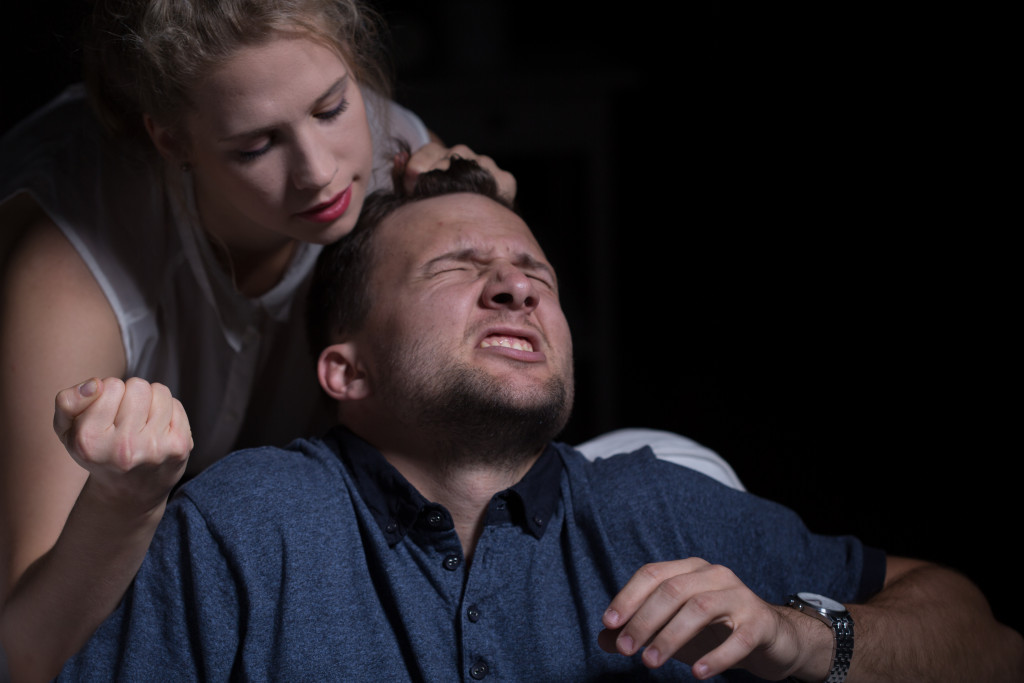Domestic abuse is an ongoing problem worldwide, including in the United States. It’s estimated that about one in three women and one in four men experienced physical violence by an intimate partner within the past year. It’s one of the main reasons the CDC dubbed it the “Shadow Pandemic.”
Domestic abuse can have a lasting impact on victims, causing physical and emotional scarring that can last a lifetime. Therefore, it’s essential to understand the warning signs of domestic abuse to keep yourself or someone you know safe from harm. It’s also important to know the laws surrounding domestic abuse to get the help and protection you need.
Violence Against Women Act (VAWA)
The Violence Against Women Act (VAWA) is a federal law that was enacted in 1994 to help protect women from domestic violence. The act provides financial and legal assistance to victims of domestic violence, and it also imposes stricter penalties on abusers.
The US government reauthorized the VAWA in 2013 and now includes provisions for same-sex couples and undocumented immigrants. The act also provides law enforcement funding and training on better responding to domestic violence cases.
People can use VAWA to get a restraining order against an abuser and provide free legal assistance to victims of domestic violence. It also gives abused individuals access to legal professionals to help them and their families. A child custody lawyer is an essential professional accessible through this law. This lawyer can help you get custody of your children if you’re a victim of domestic violence. It’s part of Kayden’s Law of VAWA, giving you and your child an option if you’re both abused.
The VAWA also provides funding for law enforcement training on how to better respond to domestic violence cases. This training is essential because it helps law enforcement identify the signs of abuse and know how to respond to them appropriately.

The Family Violence Prevention and Services Act (FVPSA)
The Family Violence Prevention and Services Act (FVPSA) is the only federal law providing funding for domestic violence shelters and programs. The FVPSA offers grants to states and Tribes to help fund domestic violence shelters and programs and training for law enforcement and service providers.
The FVPSA also funds the National Domestic Violence Hotline, a 24/7 resource for victims of domestic violence. The hotline provides crisis counseling, safety planning, shelter and local resources, and more.
The FVPSA is an essential law because it provides funding for vital services that victims of domestic violence need. Without this funding, many shelters and programs would be unable to operate.
The Clery Act
The Clery Act is a federal law requiring colleges and universities to report crime on campus. This law is essential because it helps ensure that students are aware of the dangers of domestic abuse.
The Clery Act requires colleges and universities to keep a public crime log, and they must also provide timely warnings about crimes that pose a threat to the campus community. The law also requires colleges and universities to have policies to prevent and respond to domestic violence.
The Clery Act is essential because it helps keep students safe from domestic violence. It also gives them the information they need to make informed decisions about their safety.
The Fair Housing Act
The Fair Housing Act is a federal law that prohibits discrimination in housing. This law is crucial because it can help victims of domestic violence find safe housing.
The Fair Housing Act protects victims of domestic violence from being evicted from their homes because of the abuse. The law also prohibits landlords from refusing to rent to someone because they’re a victim of domestic violence.
The Fair Housing Act is an essential law because it helps victims of domestic violence find safe housing. Without this law, many victims would be forced to stay in abusive relationships because they couldn’t find anywhere else to live.
Domestic Violence Offender Gun Ban
The Domestic Violence Offender Gun Ban is a federal law prohibiting people convicted of domestic violence from owning guns. This law is essential because it helps keep guns out of the hands of abusers.
The Domestic Violence Offender Gun Ban applies to anyone who has been convicted of a domestic violence offense, even if it was just a misdemeanor. The law also applies to people who have been subject to a restraining order for domestic violence.
The Domestic Violence Offender Gun Ban is an important law because it helps keep guns out of the hands of abusers. Without this law, many abusers could access firearms and use them to harm their victims.
These are five essential laws you need to know about if you’re a victim of domestic abuse. These laws can help you keep safe and get the help you need. If you’re in an abusive relationship, please reach out for help. There are many resources available to you, and you are not alone.

